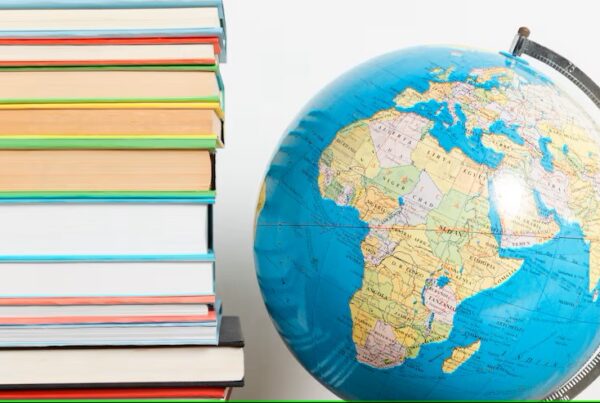Top Certified and Official Translation Services
Official translation is the core of global business communication. It’s now needed more than ever. In this blog we will put these services under the spotlight to find out how businesses can get advantage of it.
What Does Official Translation Mean?
Official translation refers to the process of converting documents from one language to another with the assurance that the translated version is legally valid and accurately reflects the content of the original. This often involves a certified translator or translation agency providing a signed statement, stamp, or seal attesting to the translation’s accuracy and completeness. The specific requirements for what constitutes an “official” translation can vary depending on the country and the requesting authority, but the core principle remains: to produce a translation that can be trusted and accepted for formal, legal, and administrative purposes.
5 Benefits for Official Translation Services
If your business is growing on a global level, communication could be an obstacle when introducing your brand or business to the local market.
These are some of the benefits of official translation:
1- Ensures Legal and Regulatory Compliance: As your business expand internationally, you need to encounter diverse legal frameworks and regulatory requirements. Official translations of contracts, patents, financial statements, and other critical documents ensure adherence to local laws. This step prevents costly legal challenges, fines, and operational disruptions and demonstrates a commitment to operating legitimately in each market.
2- Facilitates Smooth International Communication: Accurate official translation eliminate misunderstandings in crucial business communications with international partners, clients, and stakeholders. Official translation services foster clearer negotiations, stronger collaborations, and more effective internal communication across multilingual teams, boosting efficiency and reducing errors.
3- Builds Trust and Credibility in New Markets: Officially translated materials in the local language shows respect for the target audience and their culture. It will lead to building trust, enhancing brand perception, and creating a long-term commitment to the market, making the business more relatable and trustworthy to potential customers and partners.
4- Supports Market Entry and Expansion: Official translation services are often a prerequisite for entering new markets, whether for registering a business, obtaining licenses, or marketing products. Providing officially translated documents streamlines these processes, accelerates market entry, and facilitates smoother expansion into diverse linguistic regions, giving the business a competitive edge.
5- Protects Intellectual Property and Sensitive Information: For globally expanding businesses, safeguarding intellectual property is paramount. Official translation services of patents, trademarks, and legal agreements provide legally sound protection in international jurisdictions.
– Your Timeline and Budget: While quality should be the primary focus, be realistic about your deadlines and budget constraints. Discuss turnaround times and pricing structures transparently with potential providers.
- 2. Conduct Thorough Research and Due Diligence:
With a clear understanding of your needs, initiate your research:
– Seek Recommendations and Referrals:
– Explore Online Directories and Professional Associations: Platforms like ProZ.com, TranslatorsCafe.com, and directories of professional translation associations (such as the American Translators Association (ATA) if dealing with US-related documents, or similar organizations in other regions) can provide lists of qualified professionals and agencies.
– Scrutinize Online Reviews and Testimonials: Look beyond the provider’s website. Check independent review platforms for unbiased feedback on their quality, reliability, and customer service.
– Assess Certifications and Accreditations: Look for ISO certifications (like ISO 9001 for quality management or ISO 17100 specifically for translation services). Membership in recognized professional organizations can also be a good indicator of professionalism and adherence to industry standards.
- Evaluate Expertise and Quality Assurance:
Dig deeper into the providers’ capabilities:
– Inquire About Translator Qualifications: Ask about the translators’ credentials, experience in official translations, language proficiency levels, and subject-matter expertise. Native speakers with relevant academic backgrounds and professional certifications are highly desirable.
– Understand Their Quality Control Processes: A reputable provider will have a robust quality assurance workflow that includes translation, editing by a second linguist, and proofreading. Ask about their revision and error correction policies.
– Request Samples or Trial Translations: consider requesting samples of their previous official translations in your language pairs and industry. A small, paid trial project can also be a valuable way to assess their quality and responsiveness firsthand.
- Consider Practical Factors:
Beyond linguistic expertise, consider logistical aspects:
– Communication and Customer Service: A responsive and communicative provider is essential for a smooth and efficient process. Assess their professionalism and willingness to address your questions and concerns.
– Data Security and Confidentiality: Ensure they have robust data protection measures in place and are willing to sign a Non-Disclosure Agreement (NDA), especially when dealing with sensitive business information. Given your location, inquire about their compliance with Egyptian data protection laws if applicable.
– Technological Capabilities: Do they utilize translation management systems (TMS) that can enhance efficiency and consistency, especially for ongoing translation needs?
– Geographic Location: While many services are online, a local provider in New Cairo City might offer advantages for in-person consultations or a better understanding of local legal nuances, although this is not always a necessity.
- Request Detailed Quotes and Compare:
Obtain detailed quotes from your shortlisted providers. Ensure the quotes are transparent and clearly outline all costs, including translation fees, certification fees, notarization costs (if required), and any potential surcharges. Don’t solely base your decision on price; prioritize value and quality.
Get to know more about official translation services and how to can help you in international markets.







